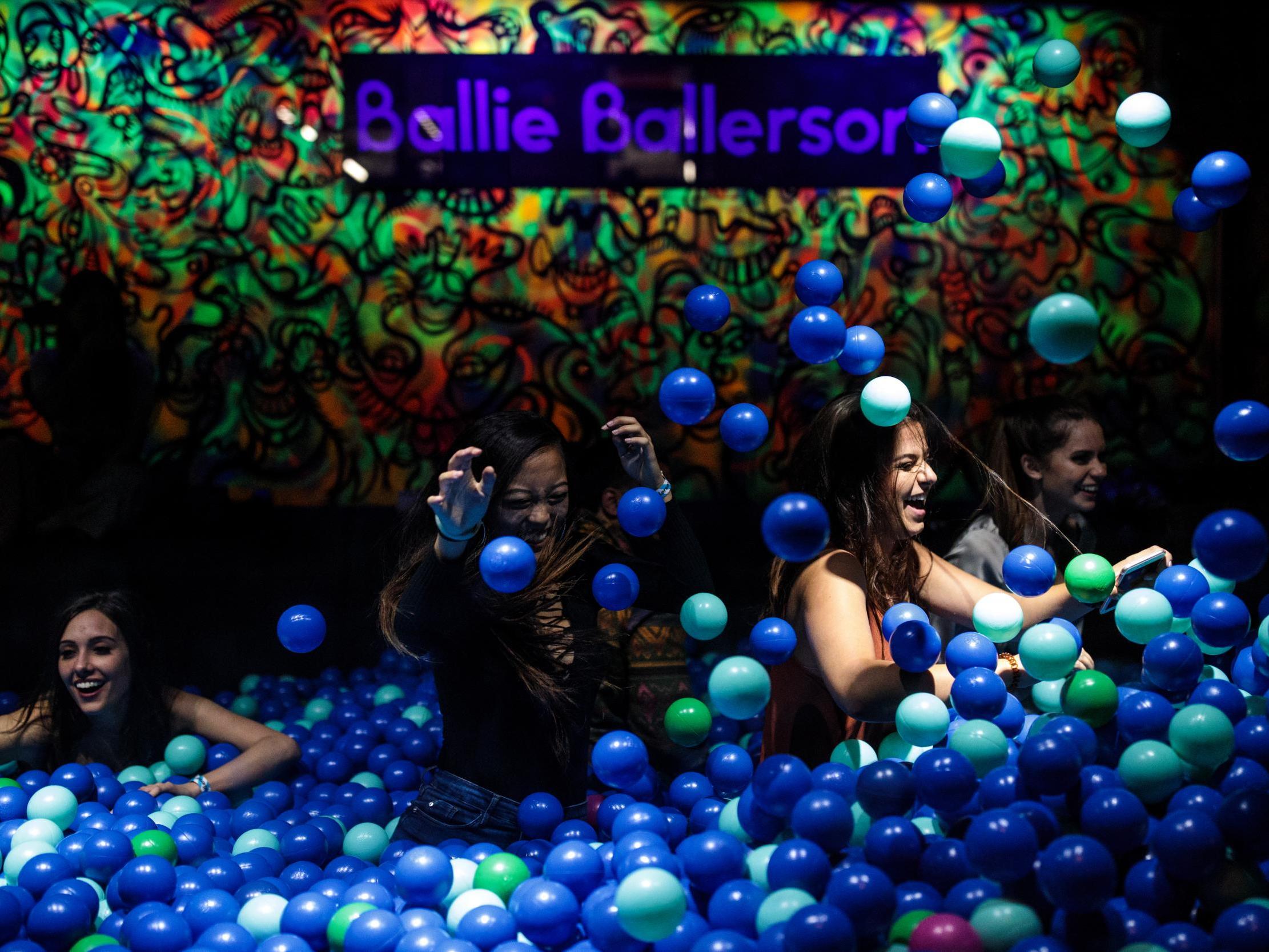Lockdown brought the over-priced experience industry to a screeching halt – here’s why it may never come back
The surge of adult ball pits, novelty dining and immersive theatre had a good run, writes Nathalie Olah. But consumer habits are changing

As Covid-19 continues to ravage industries across the board, one in particular faces worse prospects than most. A recent article in The New York Times highlighted the plight of the experience economy, whose large-scale, crowded events will be unviable in the short-to-mid term. But another part of the experience economy includes a growing novelty leisure and tourism industry, and it is this, arguably, which faces the greater threat in a world where we have developed less patience for gimmickry and non-essential consumerism.
In the strictest sense, the “experience economy” refers to the sensory, visual and interpersonal aspects of trading with any given company or corporate entity. Most theories about its rise centre around consumer malaise towards an economy saturated by so much stuff, but also the need for brands to distinguish themselves and promote loyalty. It was no longer enough to offer goods or services, now companies also had to provide events, content, membership options and loyalty rewards.
But in the past decade, we’ve seen that tendency go one step further, with the creation of an industry built entirely around experiences of ever-more absurd and novel proportions. This includes novelty travel companies, including Airbnb and its additional “experience” option introduced in 2016, but also, coinciding with the decline of the high street, the proliferation in adult ball pits, novelty dining experiences, immersive theatre and cinematic productions. Most of which are prohibitively expensive, making them the preserve of young professionals with a high level of disposable income.
But in the post-Covid economy, consumer habits are changing, and more of us than ever before are starting to re-evaluate the need for community, for quality of experience, over quantity. In a report published by the UK polling company YouGov, eight out of 10 people stated that they would prefer health and wellbeing to be prioritised over economic growth during the coronavirus crisis, while six in 10 stated that they would still prefer that to continue once the pandemic had subsided. This shows quite a staggering departure from the GDP measure of success, and a consumer culture predicated on excess and indulgence. It appears, that what more and more of us are seeking, is a life built around meaningful connections.
Pubs will surely thrive. Restaurants too. These are the facets of life that I hear people craving. But hanging from a crane over the Thames while eating a four-course dinner? Not so much. Over-priced cocktails on a dinghy while wearing fancy dress? You can think again.
This aspect of the experience economy won’t bounce back for the reason that it was so divorced from our most basic human needs in the first place. It was the inevitable end point of conspicuous consumption, where we had every convenience and gave short shrift to the status symbols of the past. We were so sold on the neo-liberal idea of ambition and success at almost any other cost, having moved away from our families and abandoned any idea of close, local communities, that we sought cheap validation of the fact that our lives were, in fact, fun, and rich and interesting.
But far from offering valuable experiences, or indeed, moving past consumerism, this new economy had done little more than reduce experience itself to a commodity. Unlike leisure, which presupposes an existing interest in whatever it is we’re doing, be that socialising, or taking part in sport, art and music – the experience economy supplied us with past-times that we never even knew we wanted, promising to bring memorable punctuation to the monotony of work, and a couple of high-value Instagram posts that were sure to pull in the likes.
This period of quarantine, however, has brought with it a renewed loss of human connection, communal belonging and personal freedoms. It is this, much more than unabated consumerism and novelty lifestyle experiences, that most of us feel we are lacking; and it will be this that we will come to value much more in the months and years to come. It had a good run, but the over-priced novelty tourism industry that passed itself off as experience has reached the end of the road. Few of us will miss it.
Join our commenting forum
Join thought-provoking conversations, follow other Independent readers and see their replies
Comments